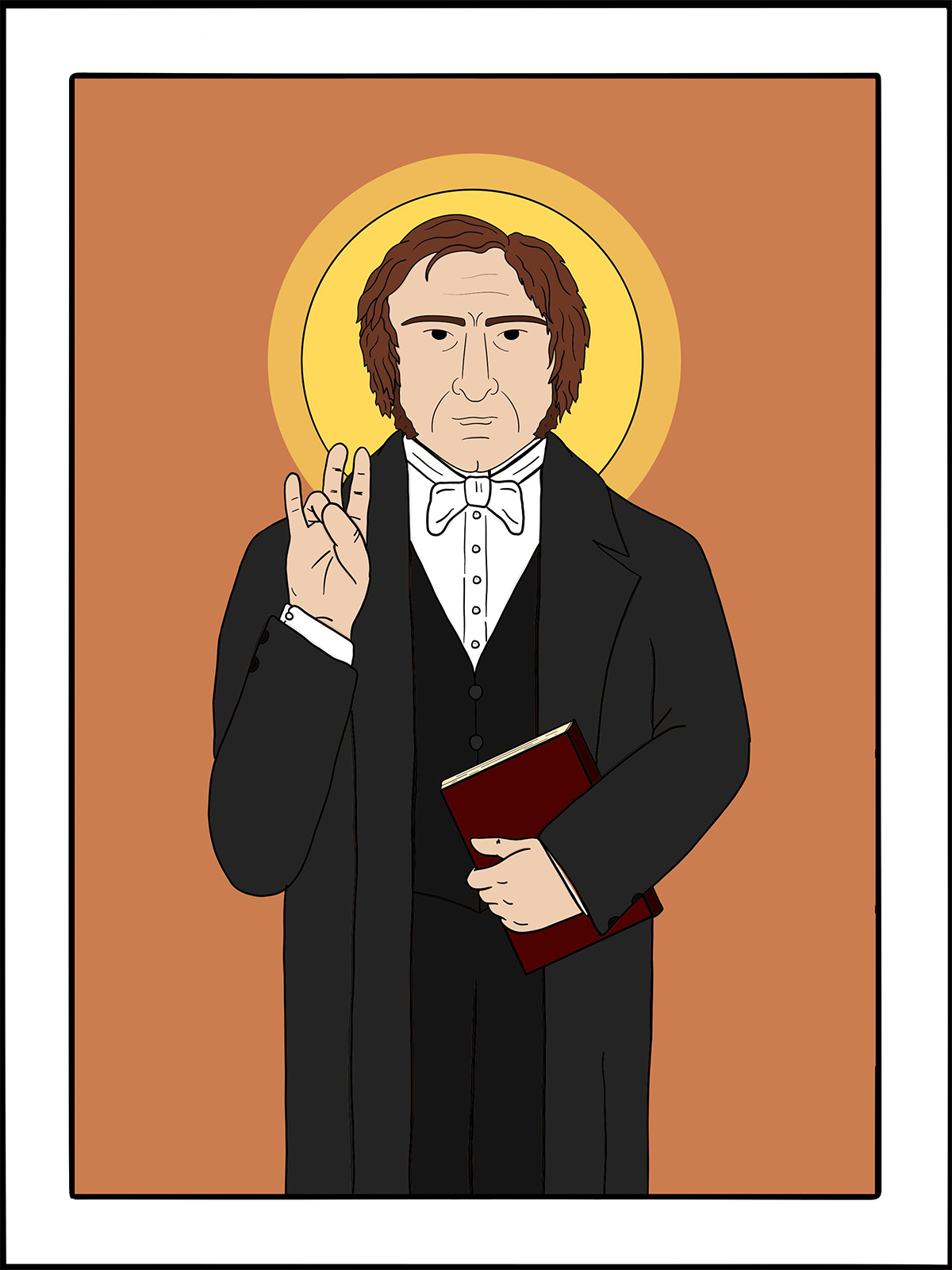
April 1
Frederick Denison Maurice
Priest, 1872
art by Rev. Kirsten Kohr of Uhrichsville, Ohio Almighty God, who has restored our human nature to heavenly glory through the perfect obedience of our Savior Jesus Christ: Enliven in your Church, we pray, the passion for justice and truth, that, like your servant Frederick Denison Maurice, we may work and pray for the triumph of the kingdom of Christ; who lives and reigns with you and the Holy Spirit, one God, now and for ever. Amen.
In the same year that Karl Marx declared religion to be the “opiate of the people,” Frederick Denison Maurice wrote, “We have been dosing our people with religion when what they want is not this but the living God.” Like Marx, Maurice wanted to solve the questions of our complex society; unlike Marx, he called for a radical, but non-violent, reform, by the renewal of “faith in a God who has redeemed mankind, in whom I may vindicate my rights as a man.” Maurice was a founder of the Christian Socialist Movement, which, he wrote, “will commit us at once to the conflict we must engage in sooner or later with the unsocial Christians and unchristian Socialists.”
Maurice was born in 1805 into the family of a Unitarian minister whose life was marked by intense religious controversy. Maurice studied civil law at Cambridge, but refused the degree in 1827, because, as a Dissenter, he could not subscribe to the Thirty-Nine Articles of Religion. After several personal crises, however, he became an Anglican and was ordained in 1834. Soon afterward, he was appointed Professor of English Literature and History at King’s College, London, and, in 1846, to the chair of Theology.
In his book The Kingdom of Christ, published in 1838, Maurice investigates the causes and cures of Christian divisions. The book has become a source of Anglican ecumenism. Maurice was dismissed from his professorships because of his leadership in the Christian Socialist Movement, and because of the alleged unorthodoxy of his Theological Essays (1853).
Maurice saw worship as the meeting point of time and eternity, and as the fountain of energies for the church’s mission. He wrote, “I do not think we are to praise the liturgy but to use it. When we do not want it for our life, we may begin to talk of it as a beautiful composition.”
After the death of the Christian Socialist Movement in 1854, Maurice founded the Working Men’s College, and resumed teaching at Queen’s College, London. Maurice awakened Anglicanism to the need for concern with the problems of society. In later years, he was honored even by former opponents. He served as rector of two parishes, and was professor of Moral Theology at Cambridge from 1866 until his death.
Excerpted directly from “Lesser Feasts and Fasts 2022,” p. 166-167.
Lessons and PsalmNumbers 21:4-9
Psalm 145
John 18:33-37
Preface of Baptism

